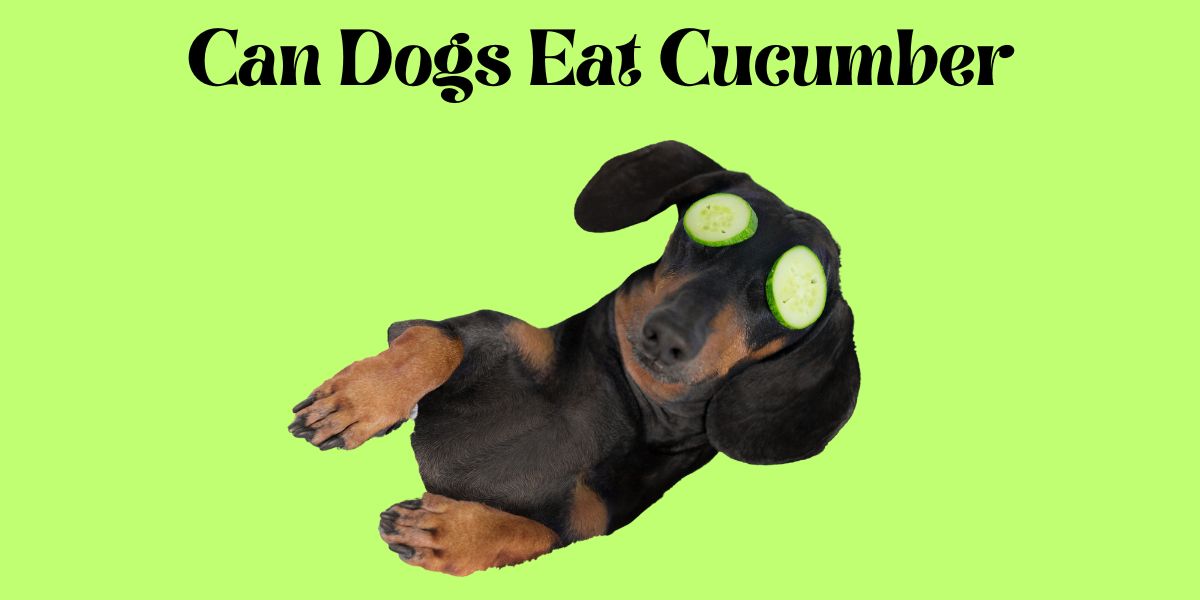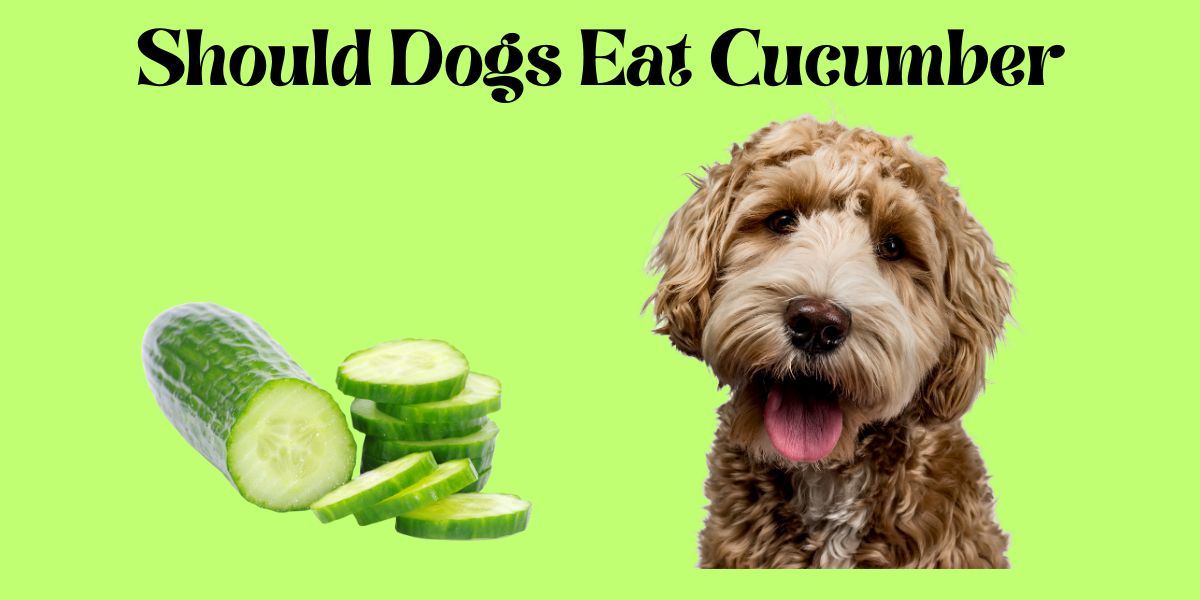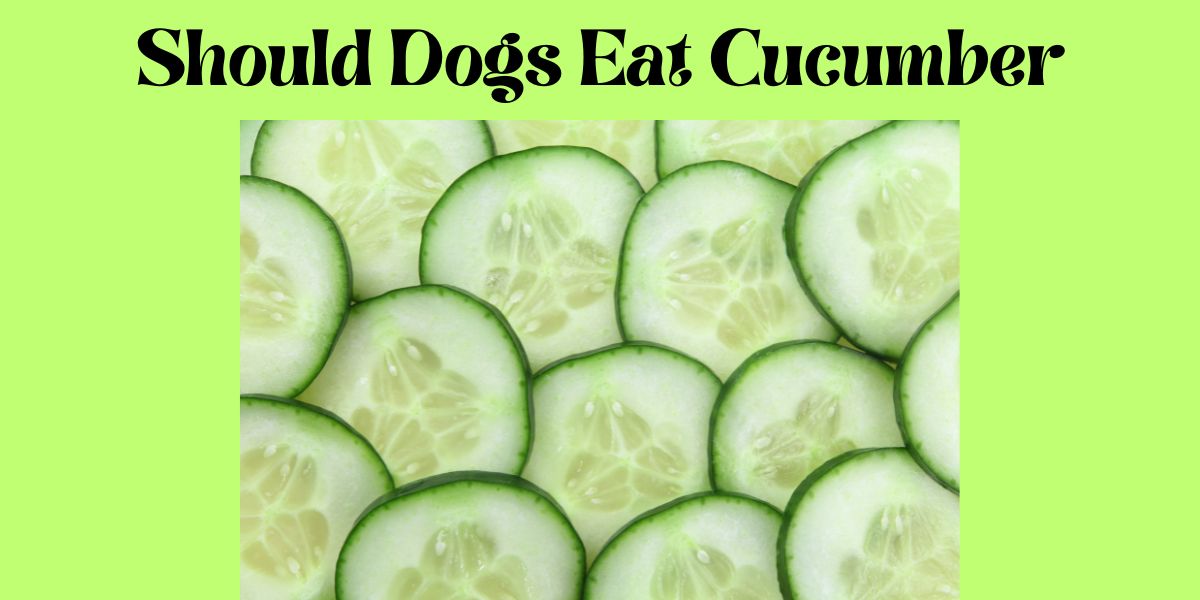Can Dogs Eat Cucumber

Have you ever wondered if it is safe for your furry friend to snack on cucumbers? Well, you’re in luck! In this article, we will explore the question, “Can dogs eat cucumber?” It’s a common vegetable found in many households, but is it a healthy option for your four-legged companion? Let’s find out!
Benefits of Cucumber for Dogs
Hydration
Cucumbers are a great natural source of hydration for dogs. They are made up of about 95% water, which makes them an excellent choice for keeping your furry friend hydrated, especially during hot summer months or after energetic play sessions. By offering cucumbers as a healthy snack, you can help ensure that your dog stays properly hydrated.
Source of Vitamins and Minerals
Not only are cucumbers hydrating, but they also provide a range of essential vitamins and minerals that can benefit your dog’s overall health. Cucumbers are rich in vitamins K, C, and B1, as well as minerals like magnesium, copper, and potassium. These nutrients can support your dog’s immune system, aid in proper digestion, promote healthy skin and coat, and contribute to overall vitality.
Aids in Weight Management
If your dog is on a weight management plan or simply needs to shed a few pounds, cucumbers can be a great addition to their diet. With their low calorie and high water content, cucumbers can help your dog feel full without adding excessive calories. The fiber in cucumbers can also aid in digestion and promote a healthy metabolism. Incorporating cucumbers into your dog’s meals or as a healthy snack can be a beneficial strategy for weight management.
Risks and Considerations
Potential Digestive Issues
While cucumbers are generally safe for dogs, they can sometimes cause digestive issues, especially if your dog has a sensitive stomach or if they eat too much at once. Some dogs may experience diarrhea or an upset stomach after consuming cucumbers. It’s always important to introduce any new food gradually and in moderation, especially if your dog has a history of digestive problems. If you notice any signs of digestive discomfort, it’s best to consult with your veterinarian.
Allergic Reactions
Although rare, dogs can have allergic reactions to certain foods, including cucumbers. If your dog experiences itching, redness, swelling, or any other signs of an allergic reaction after eating cucumbers, it’s crucial to stop feeding them this vegetable and seek veterinary advice. Pay attention to your dog’s reaction whenever you introduce new foods, including cucumbers, into their diet.
Organic and Unseasoned Cucumber
To ensure the health and safety of your dog, it’s important to choose organic cucumbers whenever possible. Non-organic cucumbers may contain pesticides or other harmful chemicals that could be harmful to your dog’s health. Additionally, always serve cucumbers without any added seasonings, such as salt or spices. Dogs have different physiological requirements than humans, and certain seasonings can be toxic to them. Stick to plain, unseasoned cucumbers to ensure your dog’s well-being.

Preparing Cucumber for Dogs
Washing and Peeling
Before offering cucumbers to your dog, it’s crucial to thoroughly wash them to remove any dirt, bacteria, or potential surface contaminants. Organic cucumbers can still harbor harmful bacteria, so a good rinse under cold running water is essential. Peeling the cucumber is optional but can be beneficial for dogs with sensitive digestive systems or those prone to choking on the skin.
Slicing or Dicing
Once washed and peeled, you can slice or dice the cucumbers into bite-sized pieces for your dog. This makes it easier for them to eat and helps prevent any choking hazards. It’s best to cut the cucumber into small, manageable pieces, especially for smaller dog breeds. Remember to remove any seeds before serving, as they can pose a choking risk.
Serving Sizes
The appropriate serving size of cucumber for your dog depends on their size, weight, and overall dietary requirements. As a general guideline, you can start by offering a small piece of cucumber as a treat or adding a few slices to their regular food. If your dog handles it well and enjoys the taste, you can gradually increase the portion size. It’s crucial to monitor your dog’s response to cucumber and adjust the serving size accordingly.
Incorporating Cucumber into Your Dog’s Diet
As a standalone snack
One of the simplest ways to incorporate cucumber into your dog’s diet is to offer it as a standalone snack. After preparing the cucumber according to the guidelines mentioned above, you can give your dog a few slices or cubes to enjoy between meals or as a refreshing treat on a hot day. Cucumbers have a mild, refreshing taste that many dogs find appealing.
Mixing with their regular food
Another way to introduce cucumber to your dog’s diet is by mixing it with their regular food. Whether you feed your dog kibble, wet food, or a homemade diet, adding some cucumber can provide extra nutrients and hydration. Consider adding small cucumber slices or diced cucumber to your dog’s food bowl and mix it in gently. This can add variety and flavor to their meals while offering the nutritional benefits of cucumbers.
In homemade dog treats
If you enjoy making homemade treats for your dog, incorporating cucumber can be a fun and healthy option. There are numerous recipes available online for dog-friendly treats that include cucumber as an ingredient. From frozen cucumber pupsicles to homemade cucumber biscuits, you can get creative and tailor these treats to your dog’s preferences and dietary needs. Just ensure that the recipes you follow are safe for dogs and do not contain any toxic ingredients.

Alternative Ways to Serve Cucumber to Dogs
Frozen cucumber treats
For a refreshing and cooling treat, you can freeze cucumber slices or chunks and offer them to your dog on a hot day. Frozen cucumber can provide a tasty and hydrating option for your pup, especially if they enjoy chewing on ice or ice-cold treats. Just like with fresh cucumber, be sure to remove any seeds and offer the frozen slices in moderation to prevent choking.
Pureed cucumber as a topper
If your dog is a picky eater or needs some encouragement to finish their meals, you can puree cucumber and use it as a topper for their food. Simply blend cucumber until it reaches a smooth consistency and drizzle a small amount over their regular food. The natural flavor and moisture from the cucumber can entice your dog to finish their meal and provide added hydration at the same time.
Cucumber-infused water
To encourage your dog to drink more water or to add a refreshing twist to their water bowl, you can make cucumber-infused water. Slice a cucumber and add it to a jug or bowl of water, allowing it to infuse for a few hours. The subtle cucumber flavor in the water can make it more appealing to your dog and may encourage them to drink more fluids, which is especially important for dogs who don’t typically drink much water.
Cucumber Varieties to Avoid
Bitter or Pickling Cucumbers
When choosing cucumbers for your dog, it’s essential to avoid bitter or pickling varieties. These types of cucumbers often contain more seeds and have a higher concentration of cucurbitacin, a compound that can cause digestive upset and even toxicity in dogs. Stick to regular, fresh, and untreated cucumbers for your dog’s safety.
Cucumbers with Artificial Preservatives
Some store-bought cucumbers may be treated with artificial preservatives to prolong shelf life. These preservatives can be harmful to dogs, so it’s crucial to opt for organic cucumbers, which are less likely to contain artificial additives. Always read the labels and ensure your chosen cucumbers are natural, fresh, and free from any additional preservatives.
Cucumbers with Added Salt or Seasonings
Avoid offering your dog cucumbers that are seasoned with salt or other spices. Dogs have a much lower tolerance for sodium than humans, and high salt intake can lead to various health issues, including dehydration and kidney problems. Stick to plain cucumbers without any added salt or seasonings to keep your dog’s diet healthy and safe.

Monitoring Your Dog’s Reaction to Cucumber
Watch for Signs of Digestive Discomfort
After introducing cucumber into your dog’s diet, it’s important to monitor their digestion for any signs of discomfort. Watch for changes in their bowel movements, such as diarrhea or constipation, as well as signs of stomach upset like vomiting or excessive gas. If you notice any of these symptoms, it may be a sign that cucumber doesn’t agree with your dog’s digestive system, and you should stop feeding it to them immediately.
Look for Allergic Reactions
While allergies to cucumbers are rare in dogs, it’s still crucial to be vigilant for any signs of an allergic reaction. Keep an eye out for symptoms such as itching, redness, swelling (particularly around the face or paws), excessive scratching or licking, or difficulty breathing. If you observe any of these signs after feeding your dog cucumber, discontinue offering it and seek veterinary assistance.
Consulting with a Veterinarian
If you have any concerns or questions regarding incorporating cucumber into your dog’s diet, it’s always advisable to consult with your veterinarian. They can provide personalized advice based on your dog’s specific needs and health history. Your vet will also be able to guide you on appropriate serving sizes, monitor any dietary changes, and address any potential risks or concerns related to feeding cucumbers to your dog.
Cucumber-Free Alternatives for Dogs
Other Dog-Safe Fruits and Vegetables
If your dog doesn’t tolerate cucumbers well or simply doesn’t enjoy them, there are plenty of other dog-safe fruits and vegetables that you can offer instead. Carrots, green beans, watermelon, blueberries, and apples are just a few examples of fruits and vegetables that dogs can enjoy. Always research beforehand to ensure the chosen fruits or vegetables are safe and appropriate for your dog’s specific dietary needs.
Commercial Dog Treats
If you’re uncertain about introducing fresh fruits and vegetables into your dog’s diet, or if your dog has specific dietary requirements, there are numerous commercial dog treats available that incorporate healthy ingredients. Look for treats made from high-quality ingredients, free from artificial additives or preservatives. These treats should be specifically formulated for dogs, ensuring they meet their nutritional needs.
Consulting with a Veterinarian for Dietary Recommendations
When it comes to your dog’s diet, it’s always best to consult with your veterinarian. They can provide personalized dietary recommendations based on your dog’s age, breed, size, activity level, and any specific health conditions. Your vet will guide you on the best choices for your dog and help ensure they receive a balanced and nutritious diet.
Conclusion
Cucumbers can be a healthy and refreshing addition to your dog’s diet when served in moderation and prepared properly. They provide hydration, essential vitamins and minerals, and can aid in weight management. However, it’s essential to be aware of the potential risks, allergies, and considerations associated with feeding cucumbers to dogs. As with any new food, it’s important to introduce cucumbers gradually and monitor your dog’s reaction. Always consult with your veterinarian for personalized dietary recommendations and to address any concerns. By incorporating cucumbers safely and responsibly into your dog’s diet, you can provide them with a delicious and nutritious treat that supports their overall health and well-being.